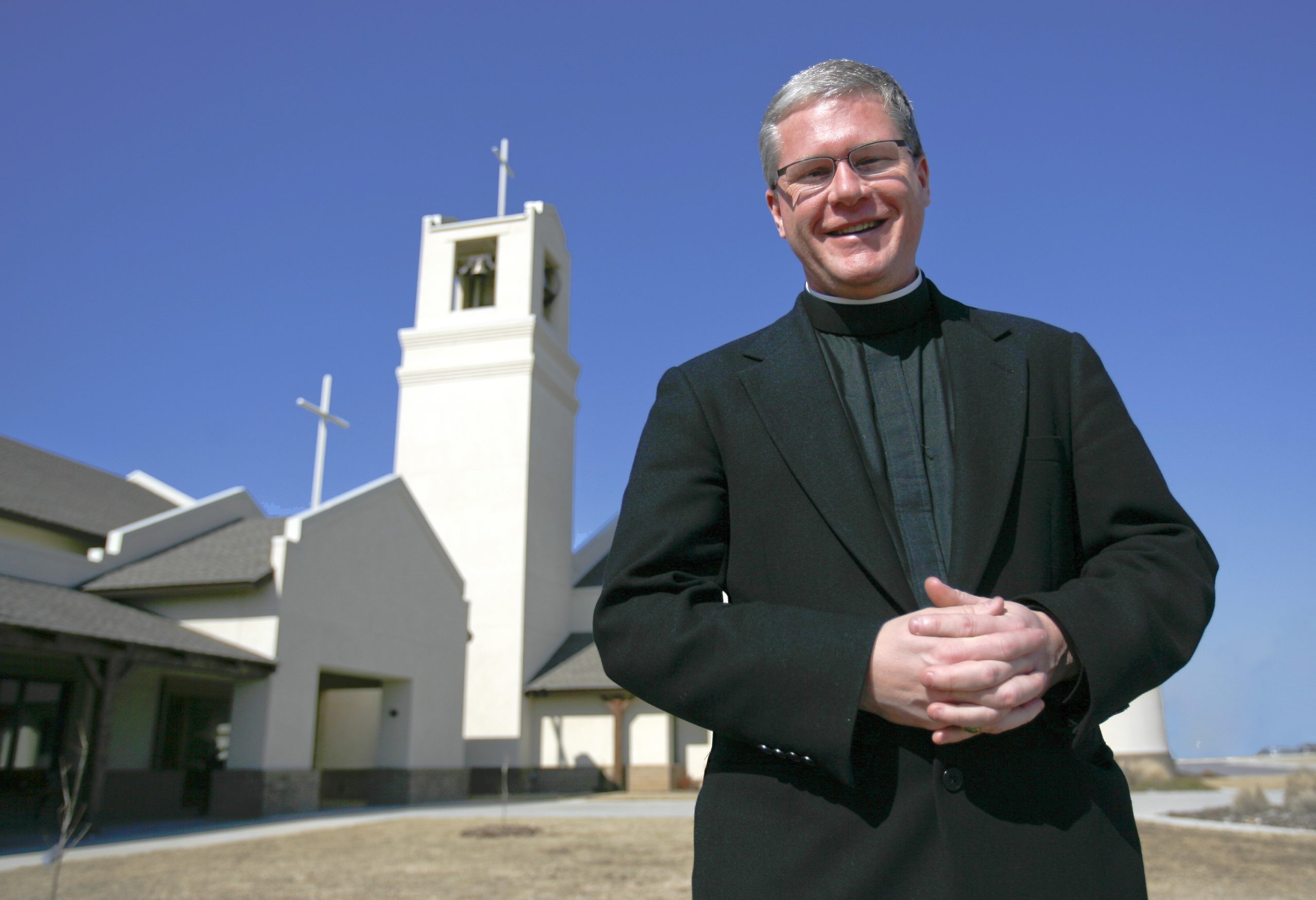Group’s leader says refugees come to Tulsa to reunite with family.
The head of eastern Oklahoma’s only refugee resettlement agency said the United States should “hit the pause button” on admitting Syrian refugees until it can ensure the safety of the American people, but after that the country should welcome the refugees.
Deacon Kevin Sartorius, executive director of Catholic Charities in the Diocese of Tulsa, said that in light of the recent terrorist attacks in Paris and elsewhere, it is the job of the government, including the Oklahoma governor and Tulsa mayor, to keep the citizens safe.
“That’s their job, and they should be allowed to do it,” he said. “But, having said that, if they can establish a safe mechanism to take in people, families and children especially, then we should accept some. Because this is the greatest nation on Earth. We’re made of immigrants. That’s our fabric.
“Establish safety, but once that’s done, we have an obligation to offer charity, to offer Christ’s love to those who are suffering.”
Sartorius met Monday night with about 100 people at McNellie’s downtown to explain the Catholic Charities immigration program. Members of the Muslim community and the interfaith community joined Catholics at that meeting.
Admitting Syrian refugees has become a hot-button topic in the United States since the Paris terrorist attacks.
“Most people do not understand why we do what we do, and where we’re headed from here,” Sartorius said.
In an interview after the meeting, he said that Catholic Charities brings refugees to Tulsa to be reunited with their family members who are already in the community.
“That makes us a family reunification site, as opposed to a free site, which takes individuals who don’t have any family ties in the community.”
He said it is easier to work with clients who have family in Tulsa because a network of support is already in place.
Nationwide, Catholic Charities handled about a quarter of the 65,000 refugees who entered the country last year.
Of those, 278 came to eastern Oklahoma, he said, 95 percent of them Burmese. Twenty refugees came from Russia, fleeing the conflict in Ukraine and Crimea.
“The Burmese typically request to come to Tulsa because they have family here, and the State Department honors that,” Sartorius said.
“It begins for us at the airport, but we maintain that relationship after they arrive,” he said.
Catholic Charities, working with other agencies, helps refugees with housing, employment, health screening, English lessons, school enrollment, banking, car purchases and other needs.
Sartorius said it is possible Tulsa could get some Syrian refugees.
“We don’t choose the population we serve. We don’t get to choose, or reject, Syrians,” he said.
“It’s early on in the process of certifying refugees from that area, and there are not as many Syrians interested in coming to Tulsa because there’s not a large population of Syrians here.”
He said Catholic Charities brought only one Syrian family — three people — to the Tulsa area this year following a 2012 request by a family member, a Syrian man who lives here.
Sartorius said the Catholic Church got into refugee resettlement in the 1970s when the U.S. Conference of Catholic Bishops, a conglomerate of 180 dioceses, decided to help the Vietnamese boat people displaced by the war in Vietnam.
That resulted in a contract with the U.S. State Department to be a refugee resettlement agency. Oklahoma has only two such agencies, Catholic Charities in the Diocese of Tulsa and in the Archdiocese of Oklahoma City.

